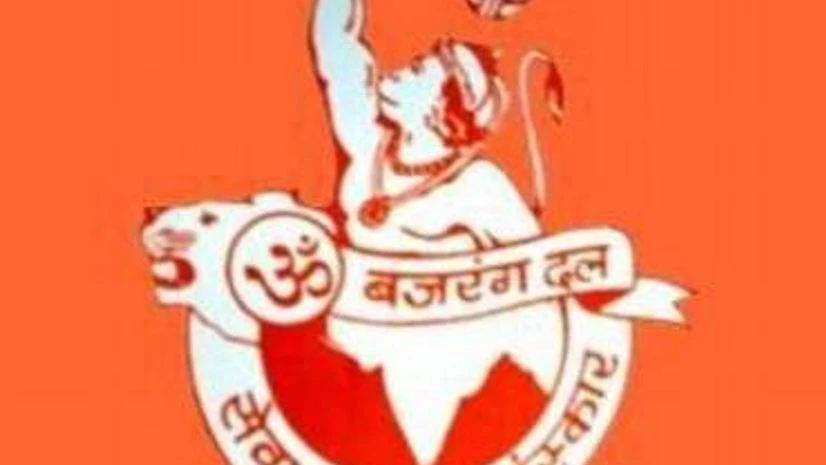In its manifesto for the May 10 Assembly elections in Karnataka, the Congress drew parallels between the banned Popular Front of India (PFI) and the Bajrang Dal, the youth wing of the Sangh-affiliated Vishwa Hindu Parishad (VHP), saying it will “ban” organisations “promoting enmity or hatred, whether among majority or minority communities”.
“We believe that law and Constitution are sacrosanct and cannot be violated by individuals and organisations like Bajrang Dal, PFI or others promoting enmity or hatred, whether among majority or minority communities,” it said in the manifesto.
“We will take decisive action as per law, including imposing a ban on any such organisations,” it added.
History of Bajrang Dal
Founded on October 1, 1984, in Uttar Pradesh, Bajrang Dal is a right-wing group with a Hindutva-based ideology. The group runs ‘akhadas’, which are similar to the shakhas conducted by the Rashtriya Swayamsevak Sangh (RSS).
The group’s slogan is “Seva, Suraksha, Sanskar” which translates to service, safety and culture.
More From This Section
The group is also accused of engaging in activities such as cow vigilantism, among others. In Karnataka, the group has a considerable presence in the coastal and Malnad regions. Cases have also been filed against members of the outfit in several parts of the state over the years.
Among several cases or violence and disruptions, on June 1, 2018, three Bajrang Dal activists were arrested in connection to the suspicious death of a Muslim man, who was allegedly transporting cattle illegally.
On April 5, 2023, a Muslim youth was assaulted by a gang for talking to a woman Hindu friend, while travelling on a bus near Ujire in Dakshina Kannada district.
Earlier calls for Bajrang Dal ban
The calls for banning Bajrang Dal are not new. Earlier on January 29, 2013, Lok Janshakti Party leader late Ram Vilas Paswan demanded a ban on VHP and Bajrang Dal in view of the violence created by these groups in Orissa and Karnataka.
A demand for a ban on Bajrang Dal and Hindu Jagran Manch was also made in October 2008, in the wake of reports that some Hindu groups were allegedly involved in the Malegaon and Modasa blasts.
In March 2002, then National Democratic Alliance allies Trinamool Congress, Samata Party, and JD(U) demanded a ban on the VHP and Bajrang Dal for storming the Odisha Assembly.
History of Popular Front of India (PFI)
Created in 2006, PFI described itself as the “organisation that fights for the rights of minorities, Dalits, and marginalised communities."
PFI was founded after merging three Islamic organisations in southern India, the National Democratic Front, the Karnataka Forum for Dignity, and the Manitha Neethi Pasarai. The organisation did not contest elections but carried on social and religious work among Muslims.
On September 28, 2022, the Ministry of Home Affairs (MHA) declared the PFI and its eight affiliates "unlawful association" for five years under the Unlawful Activities (Prevention) Act, 1967.
"The PFI and its associates or affiliates or fronts operate openly as a socio-economic, educational and political organisation but, they have been pursuing a secret agenda to radicalise a particular section of the society working towards undermining the concept of democracy," the home ministry said.
Upon the insistence of the governments of UP, Karnataka, and Gujarat, this ban came shortly after the National Investigation Agency, Enforcement Directorate, and various state police forces carried out a coordinated nationwide crackdown on the PFI.
The then-PFI chairman Oma Salam had termed the ban a "witch-hunt" against student activists involved in anti-Citizenship (Amendment) Act protests, and said the probe against the organisation was "politically motivated".
In 2019, the Uttar Pradesh government had also sought a ban on the PFI for its alleged involvement in anti-CAA protests in parts of the state.
The reasons for the Union government to ban the outfit pertained to the PFI's efforts to radicalise vulnerable persons of a community, its links to other terrorist organisations including ISIS, and more significantly, posing a threat to India's internal security by way of involvement in major violent incidents that point at the PFI.

)
